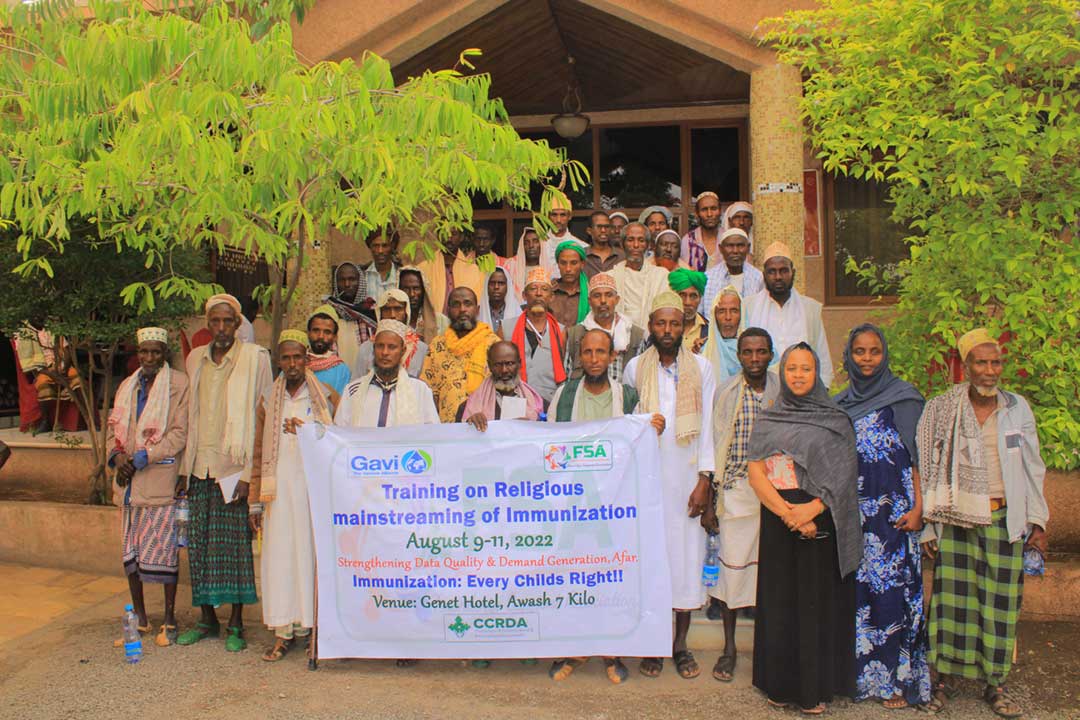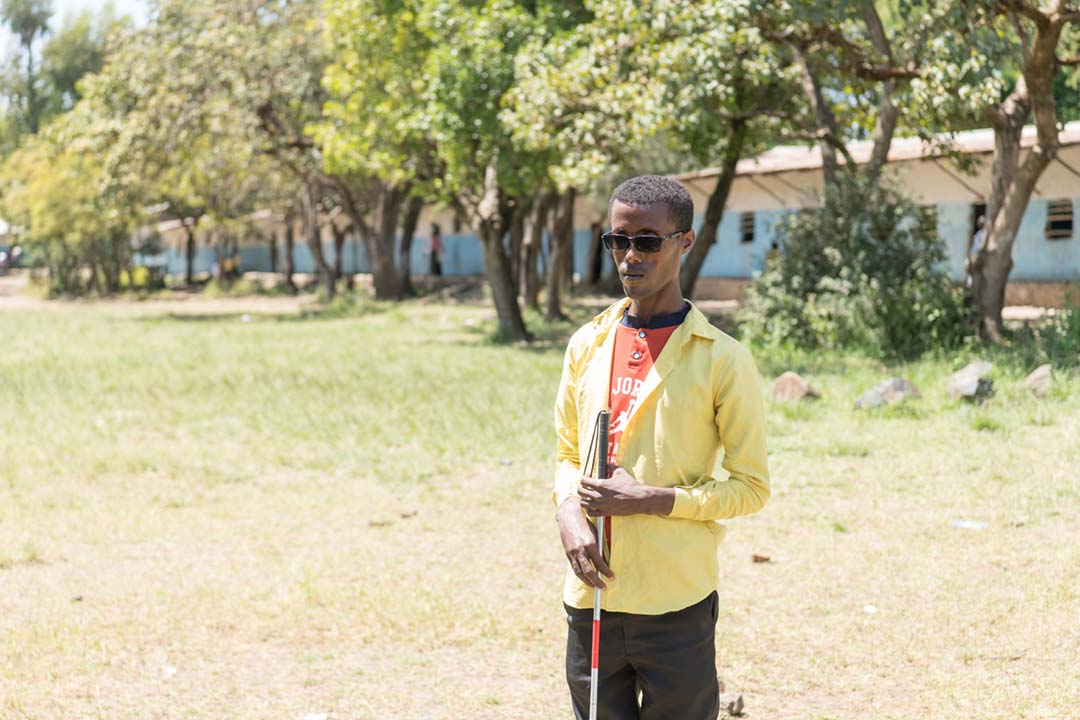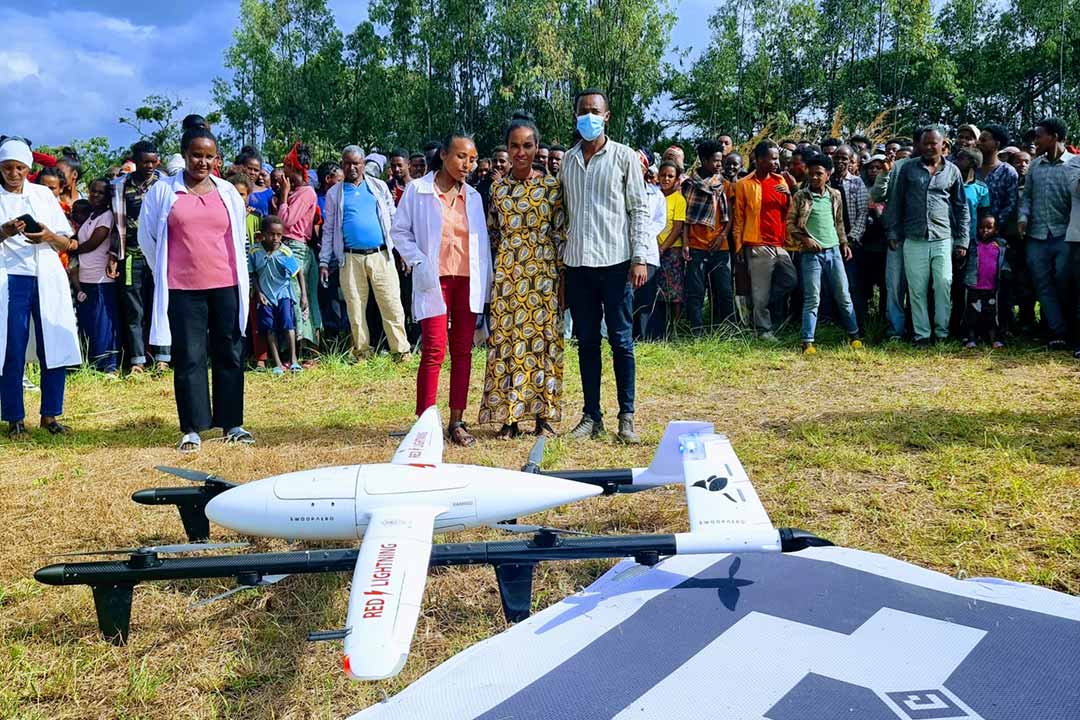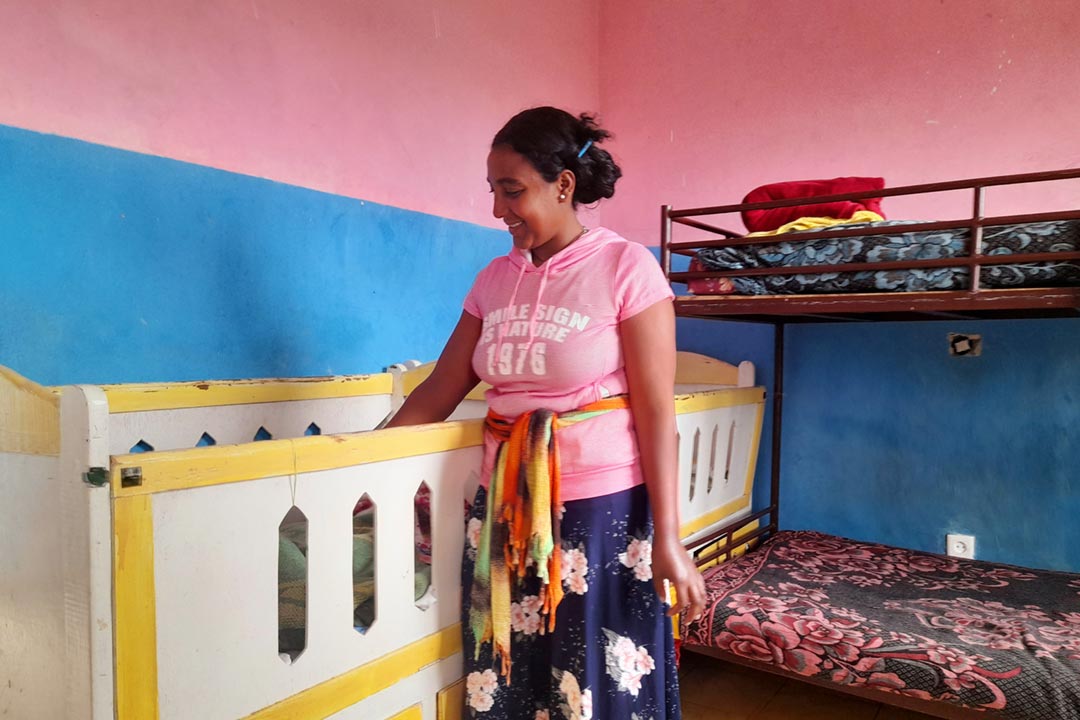COVID-19 vaccine campaigns help find zero-dose children in Ethiopia's remote villages
Health workers walk for hours to ensure that children in southern Ethiopia receive their vaccines. The COVID-19 vaccination drive has helped find the children they need to reach.
- 2 August 2022
- 5 min read
- by Solomon Yimer
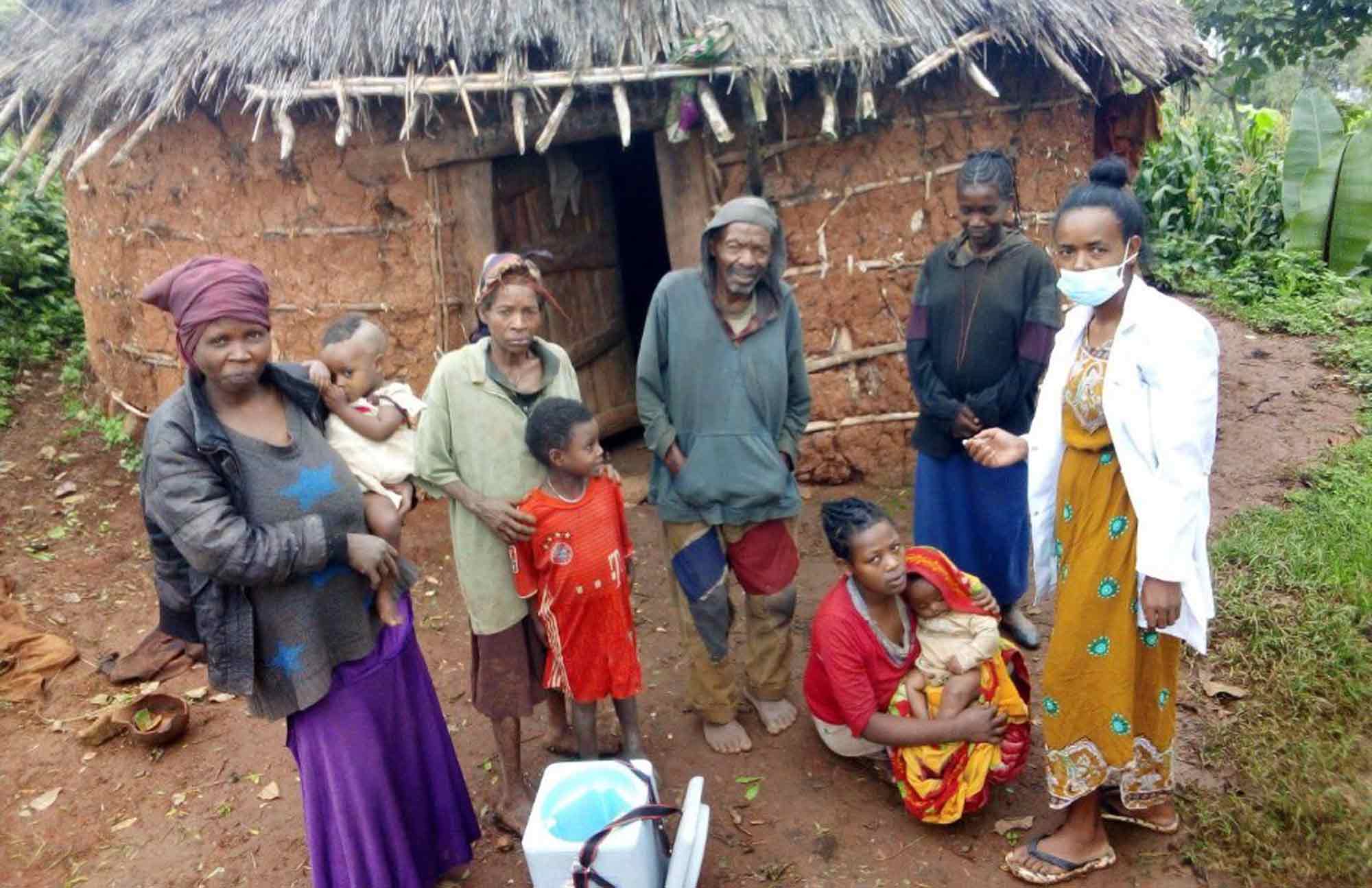
It is the morning of 15 July and Addise Angulo, a health worker at Kanko health post, starts her walk, carrying the vaccine container on her back. She’s heading to remote villages in her region to give vaccinations to children who have missed out on routine immunisation.
Her kebele – the term for a small administrative district – is one of the most remote and underdeveloped areas in the region.
"This year we conducted three COVID-19 vaccination campaigns across all kebeles and identified hundreds of children who missed immunisation. The health workers registered their names and started to give them routine vaccines. Now most of the kids who were identified during the campaigns are receiving regular vaccination."
As it was raining heavily the day before, Angulois worried about this trip. She knows from experience that the muddy and slippery road in the mountains can make the four-hour journey more difficult, but, as it is a pre-planned outreach session, she has no choice but to face the risky travel.
"I previously announced that the outreach vaccination programme is happening today. I must be there on time, because the villagers are expecting my arrival," she says. "As the villages are isolated, we often travel to central locations and let those in even more remote places know where we will be."
She explains that most of the communities in the remote villages do not come to the health post for vaccinations, but rather wait for the health workers to go to their closest locations.
"Most of the community is aware of the importance of vaccination, but only few bring their children to the health posts to get them vaccinated. Most of the effort is done by the health workers and the community mobilisers. We do our best to make sure every child is vaccinated, but there are children who miss routine immunisation, for various reasons," Angulo adds.
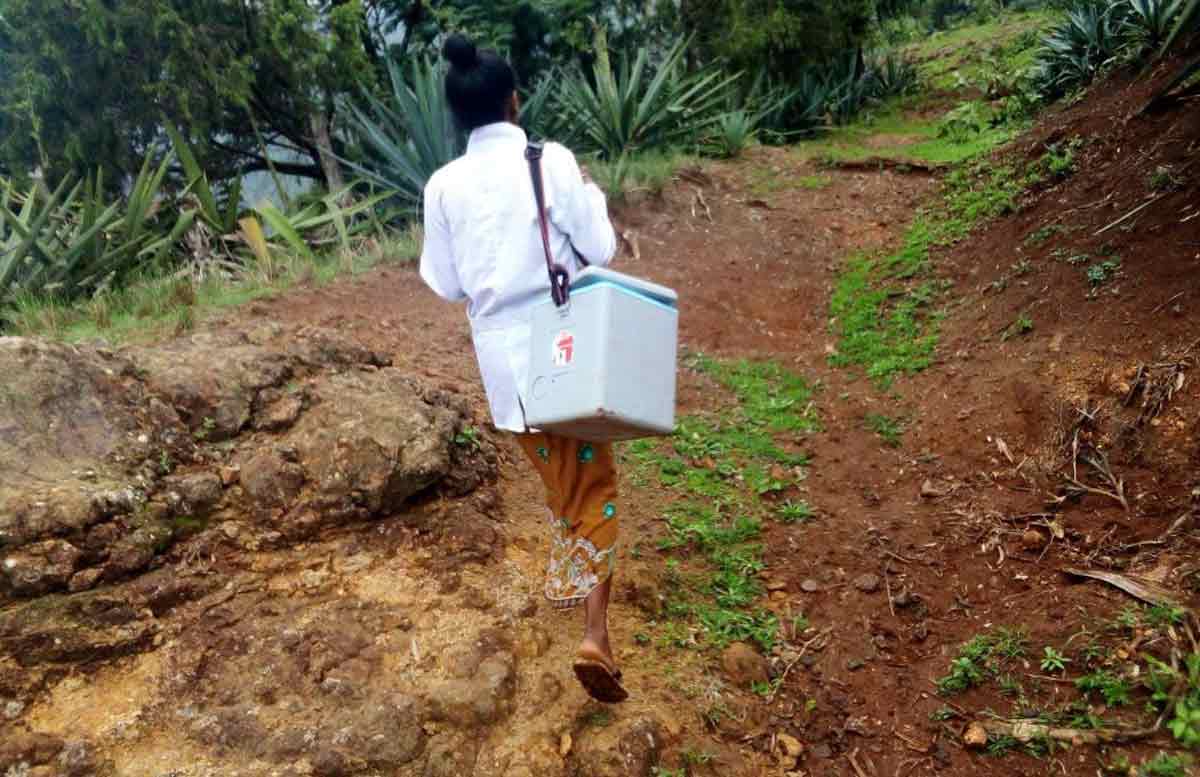
Photo credit: Solomon Yimer
According to the health station's monthly vaccination performance evaluation, dozens of children have been found to have missed out on immunisation. Addise’s outreach trip is part of the health workers’ effort to reach these children. She has a list of those who missed vaccinations and has arranged the facilities to provide them with the missing doses.
Tamene Eyasu, Deputy Head at Offa Woreda Health Office, says that the regional COVID-19 vaccination campaigns, which were conducted door to door earlier this year, helped health workers to identify the children who missed regular immunisation in most remote areas in the woreda.
"This year we conducted three COVID-19 vaccination campaigns across all kebeles and identified hundreds of children who missed immunisation. The health workers registered their names and started to give them routine vaccines. Now most of the kids who were identified during the campaigns are receiving regular vaccination," says Evasu
Explaining why these children missed routine immunisation, Evasu says, "There are still mothers who don't want to do medical follow-up at the health posts and they often give birth at home with the help of traditional birth attendants, therefore their children remain unregistered for immunisation.”
In addition, due to the remoteness of the villages, some community members were not able to get to the health posts because it means mothers have to walk for three to four hours to reach the health centre and then make the return trip, as the roads to these villages are only accessible on foot. It also means the burden on health workers to do regular follow ups is heavy.
Mihretu Shanka, head of Tida Gerbe Health Centre, the only health facility providing health services to four of the remotest kebeles, explains that vaccines are sent from the district to the centre using ambulances or, at times, motorcycles and are then distributed to the four kebeles on foot.
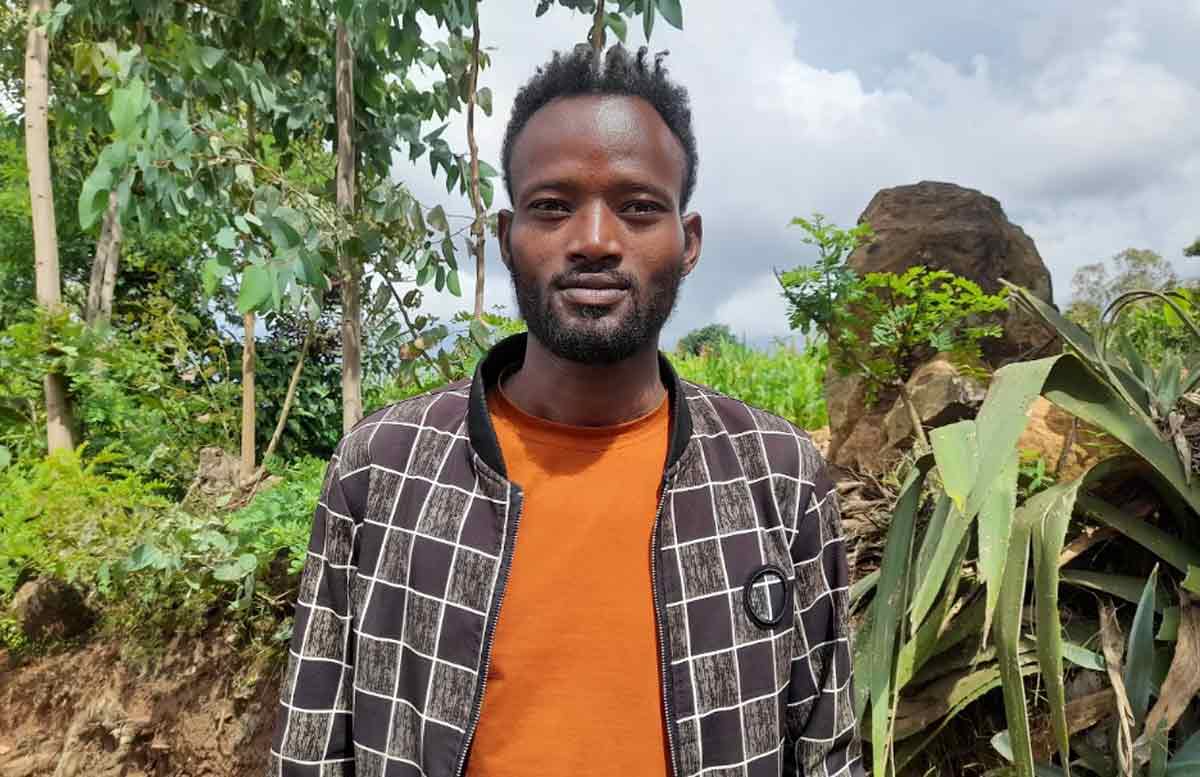
Photo credit: Solomon Yimer
"These villages are in the mountains. There is no road access to transport vaccines even by motorcycle. We are forced to send them transported on people's backs," says Shanka.
While there are solar refrigerators in the health posts to keep the vaccine cool, it is a challenge for health workers to store the vaccines during the rainy season, when the solar refrigerators aren’t working.
Have you read?
Shanka adds that the health workers run regular in-service and outreach vaccination programmes to ensure children in the community get vaccinated regularly.
During the outreach programmes, health workers, along with community mobilisers, make announcements to gather the community in accessible central locations like marketplaces, churches, schools and other communal places.
Shanka also says that there hasn’t been any vaccine hesitancy reported from the kebeles in terms of routine immunisation, but that there was some COVID-19 vaccination resistance in the community.
"However, we have changed a lot and are seeing good results after we have worked with community elders and religious leaders in creating awareness. The communities in these villages are very cooperative and local government representatives provide us with the necessary support. Plus, as the health workers are locals and have good relationships, everyone in the community is willing to accept and follow their advice."
Despite the limited resources and difficulty of reaching the remote areas, health workers like Angulo and community mobilisers in the kebeles continue to do their best to maximise vaccination coverage.
